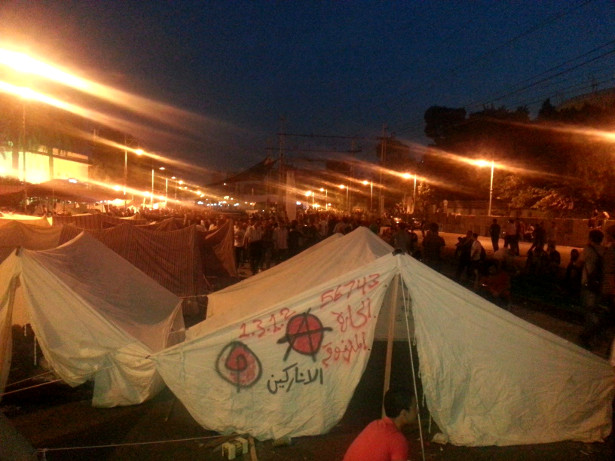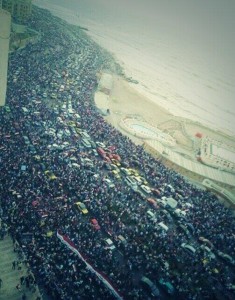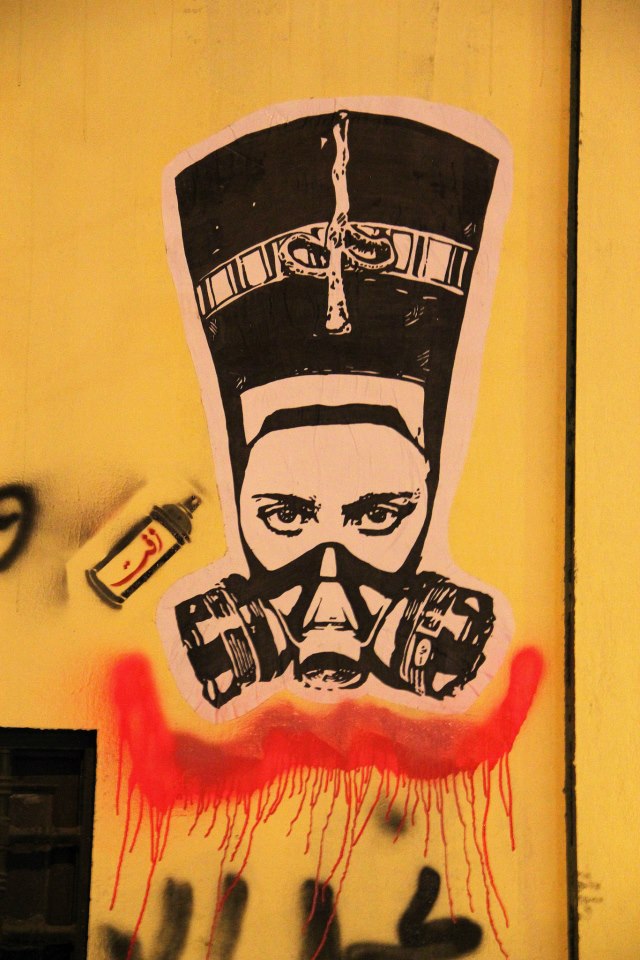Αναδημοσίευση από linksunten.indymedia.org (η έμφαση με πλάγια σε ορισμένα σημεία δική μας)
I met Mohammed Hassan Aazab earlier this year over tea at a table of young anarchists in downtown Cairo. The anniversary of the revolution had just passed with massive protests and the emergence of a Western-style black bloc that appeared to have little to do with anarchists in the city. At the time, much of the ongoing grassroots organizing was against sexual violence — in particular, the mob sexual assaults that have become synonymous with any large gathering in Tahrir. The trauma of such violence carried out against protesters was apparent in our conversation. In fact, Aazab told me that he was done with protests and politics, and had resigned himself to the dysfunction of day-to-day life in Egypt.
Then came June 30. Crowds reportedly as large as 33 million took to the streets to call for the Muslim Brotherhood to step down from power, just a year after Mohammed Morsi took office. In the pre-dawn moments of July 1, as Aazab’s phone battery dwindled steadily, I reconnected with him to chat a bit about his return to resistance.
The interview:
What’s the feeling in Cairo right now? We’re seeing reports here of the largest protests in human history.
Today, all of us worked really hard to get through the protests without violence. Everyone’s afraid a civil war could break out. The protesters gave Morsi 48 hours to step down. If that deadline passes, there’ll be a general strike. In the last five hours, 10 people were killed — four in Assiut and six in front of the Muslim Brotherhood headquarters. The sun is coming up now. All the old revolutionaries are preparing for clashes in the streets.
I heard that the Muslim Brotherhood headquarters were torched. Is that true?
Yes. And it’s still surrounded by protesters right now.
Who called for the general strike? Are there particular unions involved?
No. The unions are totally ineffective.
So how is the strike organized?
Tamarod [the Rebel Movement] called for the general strike. Actually, it has not been organized in advance; it has been a spontaneous development. It will work by people believing in and supporting it.
Do you think people will follow through?
Port Said will start the general strike tomorrow. I have no idea to what extent people will follow through on it, beyond that. But it’s clear people are absolutely determined to force Morsi out.







